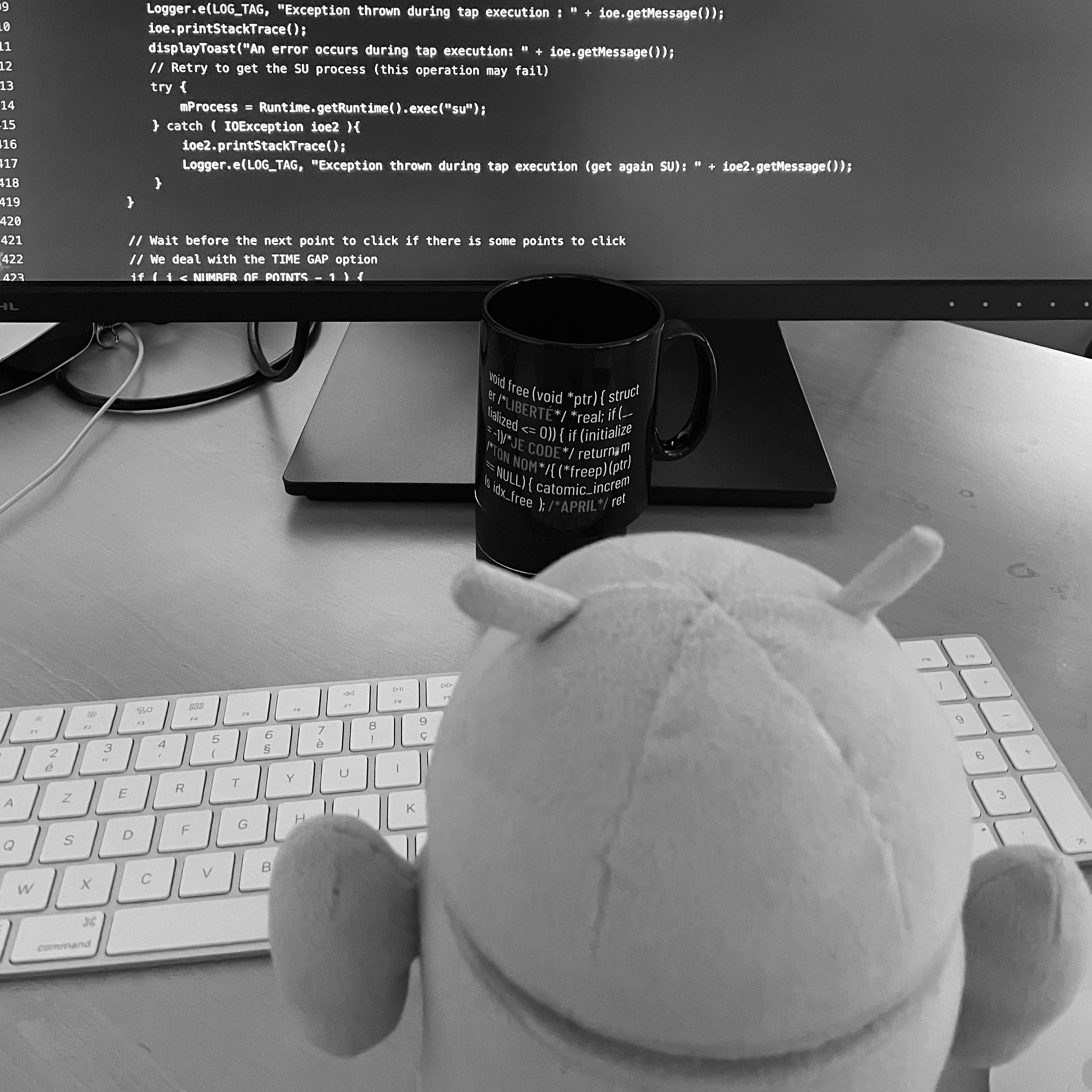Any hardware that’s abandoned needs to be forced to release the source of any needed software - the latest version.
We’d need a range of available licences, as to prevent any bullshit “you’re only allowed to read this source” license.
This is going to suck for Apple, but it’s going to be great for people who pay for some expensive microscope that’s not supported any more.
There’s probably a lot of legal nonsense that may make this impossible in practice, but I’d love to see this happen.
Same thing for companies that run out of business. When you pay for something there’s a (sometimes tacit) agreement that bugs will be fixed. At least this would allow companies/users to do that themselves when needed.
So would I. Every election, the Pirate Party gets my vote. On technical issues, they are the only party that really understands what’s going on.
That we stop fawning over tech CEOs
Accessibility and internationalization first. A lot of projects start without it and tack it on later. It’s so much better to have good roots and promote diversity and inclusivity from the start.
Could you elaborate in what context and to what extend? I can agree that bigger companies with large user-bases should have a focus on accessibility and internationalization -
But generally a lot of projects start with just one dev solving a problem they have themselves and make their solution Open-Source. Anecdotally, I’m dumping my solutions on Github that are already barely accessible to anyone somewhat tech-illiterate. No one is paying me anything for it. Why would I care whether it’s accessible or internationalized for non-English speakers?
As a solo developer, some things are out of scope like writing translations or ensuring full compliance with accessibility standards. What’s important is to have some knowledge of what things block progress in these areas. For example, not treating all strings like ASCII, or preferring native widgets/html elements as those better support accessiblity tools.
Internationalization isn’t about the translation. It’s about not hard coding the strings that display. Putting them somewhere that is easy to swap out would allow users to provide their own if they wanted.
Privacy policies should concern not just the site’s right to gather data, but the rights of users to post other people’s data
Have developers be more mindful of the e-waste they’re contributing to by indirectly deprecating CPUs when they skip over portions of their code and say “nah it isn’t worth it to optimize that thing + everyone today should have a X cores CPU/Y GB of RAM anyway”. Complacency like that is what leads software that is as simple in functionality as equivalent software was one or two decades ago to be 10 times more demanding today.
It leads to software obesity and is a real thing. I think it has to do with developer machines being beefy, so if you write something that runs on it and don’t have a shit machine to test it on, you don’t know just how badly it actually performs.
But it also has to do with programming languages. It’s much much easier to prototype in Python or Javascript and often the prototype becomes the real thing. Who really has time (and/or money) to rewrite their now functional program in a language that is performant?
IMO there doesn’t seem to be a clear solution.I don’t think that even the languages are the problem, it’s the toolchain. While certainly if you went back to C or whatever, you can design more performant systems, I think the problem overall stems from modern toolchains being kinda ridiculous. It is entirely common in any language to load in massive libraries that suck up 100’s of mb of RAM (if not gigs) to get a slightly nicer function to lowercase text or something.
The other confounding factor is “write once, run anywhere” which in practice means that there is a lot of shared code and such that does nothing on your machine. The most obvious example being Electron. Pretty much all of the Electron apps I use on the reg (which are mostly just Discord and slack) are conceptually simple apps that have analogues that used to run on a few hundred mbs of storage and 10’s of mb of RAM.
Oh, one other sidetone - how many CPUs are wasting cycles on things that no one wants, like extremely complex ad-tracking/data mining/etc.
I know why this is the case, and ease of development does enable us to have software that we probably otherwise wouldn’t, but this is a thing that I think is a real blight on modern computing, and I think it’s solvable. I mean, probably the dumbest idea, but improving translation layers to run platform-native code can be vastly improved. Especially in a world where we have generative AI, there has to be a way to say “hey, I’ve got this javascript function, I need this to work in kotlin, swift, c++, etc.”
LLVM will save us.
Maybe…
LLVM is ironically a very slow compiler back-end, whose popularity has contributed to a general slow-down in compilation speed across the whole industry (it’s even slow at doing debug builds for fast iteration).
WASM has some promise though
Doesn’t really matter if the compiler is slow if the result is optimized and fast 🤷 Rust compiles slower than C, but that’s because C has no safeguards (excluding static typing). Very often the wasted CPU cycles are on the end of the user, not the developer.
Thank you for saying this. Sometimes I feel like I sm the only one thinking like this 🙇♥️
Yes!! I enjoy playing with retro tech and was actually surprised on how much you can do with an ancient Pentium 2 machine, and how responsive the software at the time was.
I really dislike how inefficient modern software is. Like stupid chat apps that use more RAM while sitting in the background than computers had 15-20 years ago…
Attention and awareness of the ways in which modern technology is harming ourselves.
We’re providing people with the electronic equivalent of heroin, from a young age, completely rewiring our brains and detaching us from nature and each other.
This! I feel it myself, my ADHD was much better when I stayed in a relatively natural setting with only little technology. for a few weeks (I did some programming there though, and boy was I focused in complex problems without medication etc. had one of my best coding sessions there I think). I’m pretty sure that a lot of ADHD but also other psychiatric issues like autism or social anxiety etc. that is diagnosed these days is because of all this unhealthy environment we have created. Or in other words, our modern technology promotes psychiatric issues such as ADHD, autism, social anxiety etc.
Fun fact: car emissions cause allergies
The statistic that ~90% of American teens own an iPhone was shocking to me. It makes me think that from a young age, children are taught not to question but just accept their cage. If closed source is all they grow up with, opensource will be foreign to them. And that in a way that’s worse than when you grow up with windows which doesn’t completely lock you in.
I’m not surprised that 90% have a phone, but am surprised that’s specific to iPhone Where are you you Android people at?
Android users aren’t having kids. /s
The disappearance of all these tech peacocks and web turkeys who focus on their number of followers and the quantity of talks rather than quality. The dev rel advocates made the atmosphere toxic
Focus more on stability in terms of apis. We can’t be rewriting our apps constantly because they keep updating frameworks every year.
I think that most core frameworks put a ton of effort into backwards compatibility. Maintainers of smaller libraries and glue packages, however…
I suppose… but when you have frameworks like Angular that update every 6 months, even the best efforts for backwards compatibility fall by the wayside.
Stop forcing updates on the lower level stuff that forces people to spend billions on maintaining code. This way, we could return to a world where you can just buy software and use it for years without some update borking it.
Also outlawing financially motivated (i.e. greedy) retroactive ToS changes.
I mean it did change for a very good reason. Stuff gets hacked because everyone is online always. In “the good old days” it wasn’t a problem because people weren’t really online so there was pretty much zero risk of old software being used to exploit your machine. These days? It’s a liability to have old stuff on your phone because someone could exploit it to steal stuff from a large number of users.
Small security updates when necessary would be fine, but all the time I just see software (especially with the web) be like, we’re deprecating these features (that millions of websites use).
Any sort of “contract”with the user including ToS, licensing agreements, etc. These consistently violate contract law since it’s not a negotiation between peers, you don’t have an opportunity to read before purchasing, and there’s no direct quid pro quos for what you’re giving up. By all rights these should be unenforceable
Fucking always-on connectivity and security problems caused by it are the main reason why things can’t just work. You need to be updated or else.
I visited a friend not that long ago and he kept using Windows XP and The Bat and Opera around version 9. He knew every keyboard shortcut because he didn’t have to relearn every few years. Never got hacked, I just wonder when his bank stops working because of TLS incompatibilities.
- No more proprietary software (including firmware)
- No more software that spies on its users
- No more software that disrespects user freedom
- No more corporations solely trying to extract profit from their users
- More free hardware
As a guy, I’d like to see less sexism in the field, there’s no reason why gender would affect skill
I’m curious, are you in the USA? Working in Western Europe, so far I have never seen sexism (nor racism) happen at work. Outside of it, for sure though.
Are you a guy by any chance. I also hadn’t noticed until the day I asked a couple of my women colleagues. Turns out it can be very subtle but “effective”. And it can also come from women.
A friend of mine got asked if she had a boyfriend. She asked back “why that question”. It was to know whether she would be likely to get pregnant and miss work.
What a horrifying mentality some companies have
As a guy, my manager kicks ass and we’re all extra motivated to make her look good. She used to be a peer but once she became manager, her true skills shone
Data is a part of a person’s individual self. Storing such data on another person is owning a part of their person. It is slavery for exploitation, manipulation, and it is wrong.
This distinction is the difference between a new age of feudalism with all of the same abuses that happened in the last one, or a future with citizens and democracy.
Never trust anyone with a part of yourself. Trust, no matter how well initially intentioned, always leads to abuse of power.
I agree with the sentiment that personal data is owned by whoever it is about. And that other organizations shouldn’t be able to exploit it.
User first, non-profit software companies. To maximize profits, software keeps sacrificing the users happiness. I want to stop having the argument that the user would want X, but hearing we can’t do that because it will hurt profits.
User first, non-profit software companies.
How do you expect to keep a non-profit software company afloat?
Non profit doesn’t mean they earn nothing
Non profit doesn’t mean they earn nothing
You need a valid business model to keep an organization ticking. Staff doesn’t live out of hopes and dreams. It’s hard enough to get a for-profit software company to stay up. If your starting point is that the company is not focused on getting a profit then it all sounds as hopes and dreams instead of an actual business plan.
… yes, a non profit is not meant to earn a profit. A profit is earning something more than what you need to be functioning.
Floaties, foam noodles, and a special ray gun that can turn anything into a float.
Balloons. Lot and lots of balloons.
☭
A pivot way from cargo cult programming and excessive containerization towards simplicity and the fewest dependencies possible for a given task.
Too many projects look like a jinga tower gone horribly wrong. This has significant maintainability and security implications.
Containerization helps isolating system dependencies however
Containerization (even for small things) makes modern infrastructure a LOT easier.
The death of the device and the return of the system.
A device is a sealed thing provided on a take it or leave it basis, often designed to oppose the interests of the person using it. Like hybrid corn, a device is infertile by design: you cannot use a device to develop, test, and program more devices.
A system is a curated collection of interchangeable hardware and software parts. Some parts are only compatible with certain other parts, but there is no part that cannot be replaced with an alternative from a different manufacturer. Like heirloom seeds, systems are fertile: systems can be used to design and program both other systems and devices.
A system is a liberatory technology for manipulating information, while a device is a carceral technology for manipulating people.













